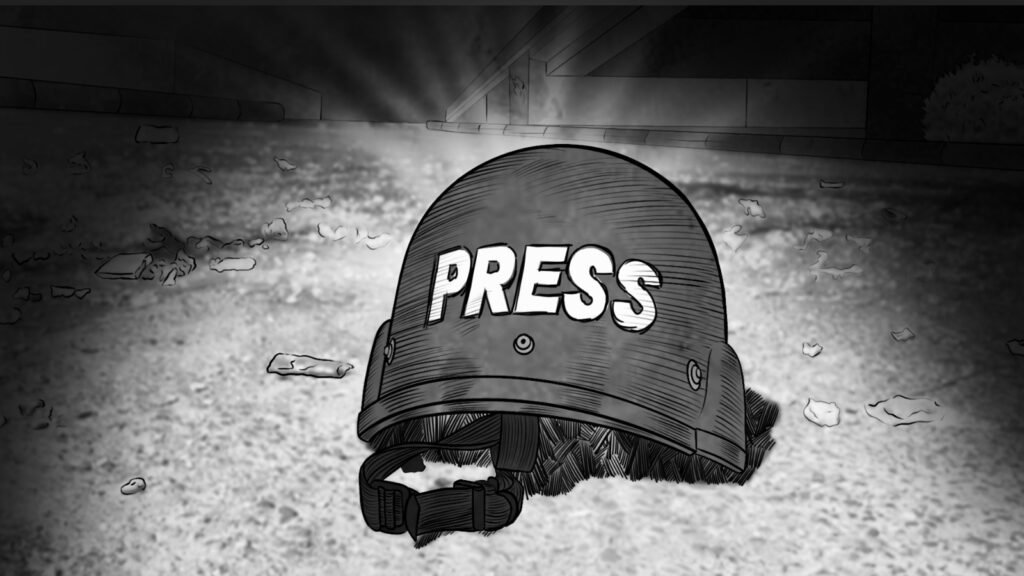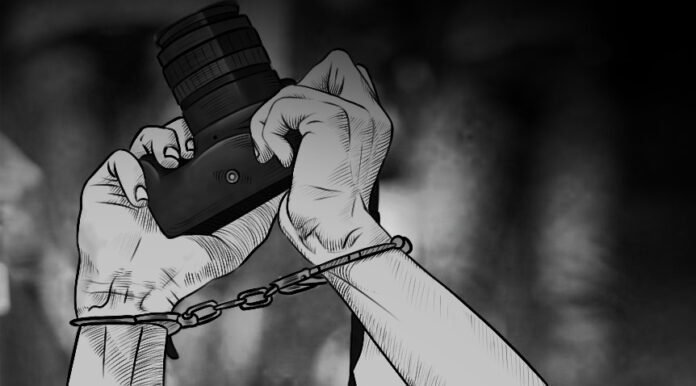The concept of freedom is a controversial notion among individuals, societies, and various cultures throughout history, as it is a basic human need essential for affirming their dignity and humanity.
Although liberation from constraints is a natural human need, there must be a balance where an individual’s freedom does not infringe upon the freedoms of others, and vice versa. Discussions about freedom often focus on relative freedom rather than absolute freedom, as living within a society requires sacrificing some freedoms for the public good, thereby enhancing the freedom of the community as a whole.
In the introduction to his book Freedom in Journalism and Media (2017), Murshid Abd Safi explains that freedom has various forms and definitions provided by thinkers and specialists that differ based on the principles an individual adheres to or their application in reality. These range from experiences of suffering and injustice to those who reject absolute freedoms and observe their negative impact on society.
This includes legally expressing opinions, practicing the religious rites one adheres to, or even self-defense. Anything that does not affect society and the public good should not be restricted unless there are clear justifications, which also encompasses actions, speech, and ideas stemming from morality, whether negative or positive.
What Happens to A Society When Freedom Is Absent?
In an episode of the programme In Depth on Al Jazeera channel, the journalist Ali Al-Dhafiri hosted the thinker Mohammed Hamed Al-Ahmari in 2010 to discuss freedom in Islamic thought. Al-Dhafiri asked, “What happens to society if freedom is absent?” Al-Dhafiri asked, “What happens to society if freedom is absent?”
Al-Ahmari responded with a list of consequences resulting from the absence of freedom, including moral corruption, the emergence of hypocrisy, and the concealment of truths, which lead to financial corruption. He explained that government control becomes a substitute for the idea of the Creator. He added that the absence of freedom leads to oppression, destroys determination and the spirit of initiative, and stated that tyranny undermines art, literature, and poetry since when a person is restricted, prevented, and their horizons blocked, expression becomes difficult.
Al-Ahmari also noted that when freedom is absent, people release their energy into illegitimate organizations, such as secret groups that find it a means to achieve their goals within societies with a narrow security mindset. The same applies to terrorist organizations, as happened with President Anwar Sadat when he denied the Egyptian people freedom of expression and imprisoned intellectuals, leading to the formation of the Jihad group which promoted its destructive ideas that ended with his assassination.
Al-Ahmari concluded his list by clarifying the moral effects of the absence of freedom, where some resort to spying for dictatorial regimes and get close to them to steal, aiming to secure a share of the spoils, “thus the state becomes a source of corruption and destruction within society.”
World Press Freedom Day
The United Nations and countries around the world celebrate World Press Freedom Day annually on May 3rd. This day serves as an opportunity to reaffirm commitment to the fundamental principle of freedom of expression. It highlights the critical role of the media in promoting the free flow of information and ideas, aiding individuals in making informed decisions, and facilitating and enhancing democracy.
The origins of World Press Freedom Day trace back to a UNESCO conference held in Windhoek, Namibia, from April 29 to May 3, 1991. At this conference, the Windhoek Declaration was adopted, advocating for the development of a free, independent, and pluralistic press.
This declaration, the first of its kind globally, emerged after the crises of the 1980s in Africa and was inspired by the movement towards democracy post-Cold War. It addressed issues facing the print media in Africa, such as intimidation and its censorship consequences, and emphasized the importance of press independence for democratic success, affirming that press freedom is a fundamental human right. The conference also discussed the practical challenges faced by journalists in Africa, including the lack of modern equipment and adequate training.
UNESCO marks this date as a pivotal moment in enhancing global press freedom, especially in Africa. The seminar was attended by 63 participants from 38 countries and supported by 12 international agencies, including the United Nations Development Programme, the International Federation of Journalists, and the World Press Association. The Namibia site notes that on the tenth anniversary of the Windhoek Declaration, May 3 was designated as World Press Freedom Day.
This date is also linked to significant political changes in Africa, such as Namibia’s independence and the decline of apartheid in South Africa. These events credited media independence and the protection of journalists, leading to regional commitments to protect freedom of expression, the increased implementation of freedom of information laws, and improved journalistic standards, significantly contributing to democratic reforms and media development worldwide.

Freedom of Opinion and Expression and Press Freedom
There is a close link between freedom of expression and press freedom, which encompasses various forms of expression, such as oral, printed, and broadcast, as well as cultural, artistic, and political expression. This freedom is not absolute but comes with duties and responsibilities that may be subject to necessary legal restrictions to balance the rights of the speaker and the recipient.
Thinkers, politicians, activists, and the public have expanded and evolved significantly in their use of the term freedom of expression, leading to a diversity of meanings depending on different groups, places, and times. Despite this diversity, there are common international definitions recognized globally as standards.
Article 19 of the Universal Declaration of Human Rights in 1948 states, “Everyone has the right to freedom of opinion and expression; this right includes freedom to hold opinions without interference and to seek, receive and impart information and ideas through any media and regardless of frontiers.”
Similarly, Article 19 of the International Covenant on Civil and Political Rights in 1966 states, “Everyone shall have the right to hold opinions without interference. [And] everyone shall have the right to freedom of expression; this right shall include freedom to seek, receive and impart information and ideas of all kinds, regardless of frontiers, whether in written, printed, artistic form, or through any other media of his choice.”
The International Human Rights Association views freedom of expression as “including the right to seek, receive and impart information and ideas to others, the right to transmit information and ideas or to express them, and also the right to access them.”
UNESCO has issued a student guide on freedom of expression, identifying four main reasons highlighting the importance of freedom of expression: Firstly, as a means for self-realization and enabling individuals to exploit their capabilities fully; secondly, as a pathway to search for truth and develop knowledge; thirdly, it allows participation in decision-making, especially in political affairs; and lastly, it contributes to the stability of society and its adaptation to changes.
The environmental crisis
World Press Freedom Day on May 3, 2024, focuses on freedom of expression in the context of the global environmental crisis, which includes climate change, biodiversity loss, and air pollution. The United Nations website highlights that misinformation campaigns seriously challenge scientific knowledge and threaten informed public debate. Misinformation about climate change can undermine public and political support for climate action, adversely affecting the protection of the most vulnerable groups, such as women and girls, who face increasing challenges due to climate change.
The website further states that for sustainable development, it is crucial that journalists provide accurate and comprehensive coverage of environmental issues, their impacts, and potential solutions. This requires adopting a comprehensive strategy that includes protecting journalists, ensuring freedom of expression and scientific research, enhancing the diversity, continuity, and governance of media outlets, as well as improving the governance of digital platforms to promote transparency and accountability in line with UNESCO principles. Additionally, it emphasizes enhancing media education and training to equip users to actively participate and engage in critical thinking within the digital space.
Zaher Hashem, in an article on the Shorthand website, mentions that climate change negatively affects humanity by threatening agricultural systems, causing water and food shortages, and leading to disasters such as floods and wildfires. These impacts disrupt fundamental rights, especially among vulnerable groups like women and children in developing countries.
According to estimates by the United Nations Environment Programme, climate change is a major cause of displacement, with women comprising 80% of those displaced, making them more susceptible to discrimination and violence in shelters. Moreover, the effects of environmental disasters and related conflicts expose migrating or refugee women and girls to risks of forced marriage and human trafficking.

Gaza War and International Hypocrisy
Journalist Amani Shenino writes for the International Journalists’ Network that the role of journalists in wartime becomes increasingly vital as they must work under significant pressure and dangerous conditions to convey the truth while maintaining safety and ethical standards.
She points out that journalists must be aware of the dangers they face and follow safety guidelines to protect themselves. They are tasked with maintaining objectivity, avoiding disseminating misleading information and rumours, and emphasizing accuracy in event coverage and source protection.
World Press Freedom Day serves as a reminder to address the situation in Gaza, where journalists face extraordinary circumstances due to their professional media work, which has angered the occupation forces. Their coverage of this brutal war on a defenceless population has resulted in severe losses of life and property, with some journalists being killed, directly targeted, or their families and homes being attacked.
According to the Government Media Office in Gaza, since the outbreak of this war in October 2023, 143 journalists have been killed, and hundreds more have been injured as of the writing of this article.
As the anniversary of World Press Freedom Day approaches, journalists continue to document the tragedies, providing live testimony to the harsh reality experienced by the entire sector.
The Western world has seen significant political changes accompanied by a suppression of freedom of expression, peaceful assembly, and exercising civil and political rights, with a feverish rise in political closure. This environment has allowed extremists to promote the Israeli occupation government as they please despite glaring legal and humanitarian transgressions. Conversely, as soon as someone begins to defend Palestinian rights, the tables turn, and standards shift.
In this context, freedom of expression considered the foundation of all other freedoms, faces a significant dilemma in Western countries that claim democracy by systematically suppressing any dissent from their political line.




